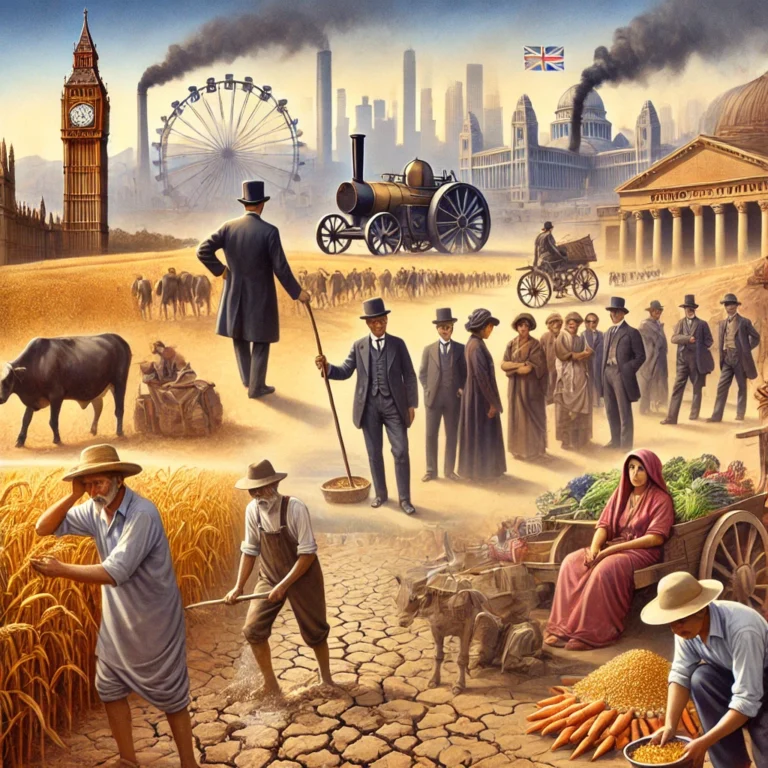
Reforming Tradition: The Women’s Question and Social Change in Nineteenth-Century India
Introduction The nineteenth century marked a crucial turning point in the history of India. This…
Empowering Minds, Shaping Futures

Introduction The nineteenth century marked a crucial turning point in the history of India. This…

Introduction The early phase of the Indian national movement was primarily political in nature —…

Introduction The artisanal and handicraft industries of pre-colonial India were the backbone of its rural…

Introduction The emergence of the Indian National Congress (INC) in 1885 marked a new phase…

Introduction The mid-eighteenth century represents one of the most transformative and tumultuous phases in Indian…

Introduction Mahatma Gandhi, the Father of the Nation, occupies a unique position in the history…

Introduction The decade of the 1940s was one of the most turbulent and transformative phases…

Introduction The Gandhian phase of the Indian national movement, roughly spanning from 1915 to 1947,…

Introduction The nineteenth century stands as a period of profound transformation in India’s socio-cultural, intellectual,…

Introduction The Revolt of 1857, often referred to as the First War of Indian Independence,…
















































































































Introduction The nineteenth century marked a crucial turning point in the history of India. This period witnessed not only the consolidation of British colonial power but also the awakening of a new socio-political consciousness among Indians. One of the most significant aspects of this awakening was the emergence of what came to be known as…

Introduction The early phase of the Indian national movement was primarily political in nature — its central goal was the attainment of Swaraj, or self-government, within the British Empire. However, as India moved into the 1920s, the vision of independence underwent a significant transformation. The experience of mass movements, exposure to global ideas, and the…

Introduction The artisanal and handicraft industries of pre-colonial India were the backbone of its rural economy. Before British colonial rule, India was world-renowned for its fine textiles, metal works, pottery, and other handicrafts. Indian artisans were integral to village life and the urban economy, producing goods both for domestic use and international trade. However, the…

Introduction The emergence of the Indian National Congress (INC) in 1885 marked a new phase in the history of India’s struggle for freedom. The early leaders of the Congress, commonly known as the Moderates, represented the first organized expression of Indian political awakening under British rule. They sought to reform the colonial administration through peaceful,…

Introduction The mid-eighteenth century represents one of the most transformative and tumultuous phases in Indian history. This period witnessed the decline of the Mughal Empire, the rise of regional powers, and the gradual establishment of British colonial authority. The political landscape of India during this time was marked by fragmentation, instability, and the erosion of…

Introduction Mahatma Gandhi, the Father of the Nation, occupies a unique position in the history of India and the world. His philosophy, deeply rooted in truth (Satya), non-violence (Ahimsa), simplicity, and moral strength, transformed not only India’s freedom struggle but also inspired global movements for peace and justice. Gandhi’s thoughts were not confined to his…

Introduction The decade of the 1940s was one of the most turbulent and transformative phases in the history of modern India. It was the decade that witnessed the end of nearly two centuries of British colonial rule and the birth of two sovereign states — India and Pakistan. However, the process of this transfer of…

Introduction The Gandhian phase of the Indian national movement, roughly spanning from 1915 to 1947, represents one of the most dynamic and transformative periods in India’s freedom struggle. Mahatma Gandhi’s entry into Indian politics revolutionized the nature, direction, and spirit of the nationalist movement. His leadership not only united people across regions, castes, classes, and…

Introduction The nineteenth century stands as a period of profound transformation in India’s socio-cultural, intellectual, and political landscape. Often described as the period of the “Indian Renaissance,” this era marked the reawakening of Indian consciousness after centuries of political subjugation, economic exploitation, and cultural stagnation under colonial domination. The term Renaissance—borrowed from the European experience—denotes…

Introduction The Revolt of 1857, often referred to as the First War of Indian Independence, stands as a watershed event in the history of colonial India. It was not a sudden outburst of discontent but the culmination of a long process of resistance against British rule that had been growing for nearly a century. From…














